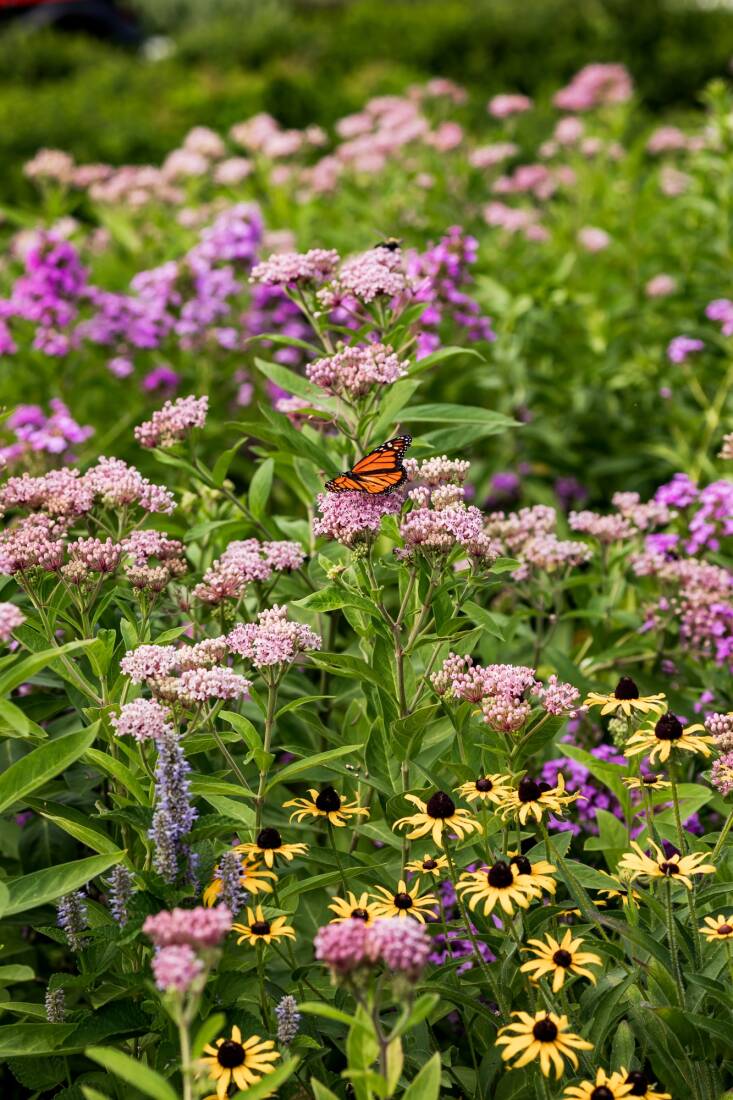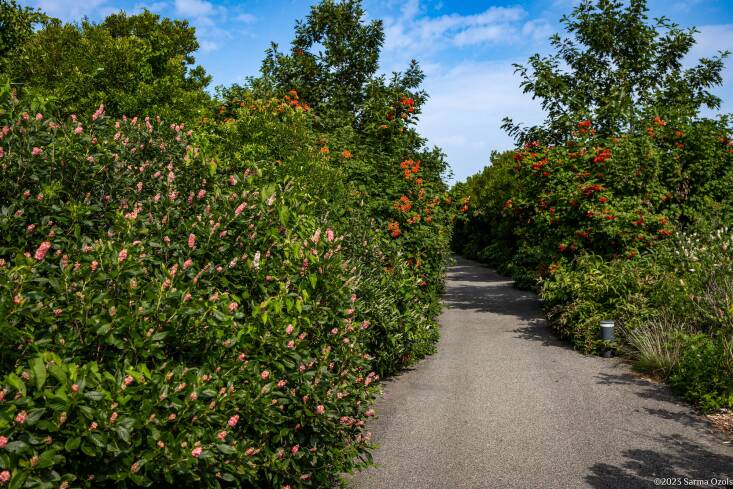[ad_1]
That is a part of a collection with Excellent Earth Undertaking, a nonprofit devoted to toxic-free, nature-based gardening, on how one can be extra sustainable in your landscapes at dwelling.
“We now have declared 2024 the yr of milkweed,” says Andi Pettis, director of horticulture at Governors Island. For the previous couple of years, Pettis and her staff have been busy incorporating milkweed into the island’s plantings. They’re specializing in the three species native to the ecoregion: butterfly weed (Pettis’s favourite due to the “unbelievable variation in colour from golden yellow to virtually scarlet”), mauvy widespread milkweed, and sizzling pink swamp milkweed. Her objective is to complete planting 5,000 milkweed crops this yr. “Exhibiting the connection between monarch butterflies and milkweed is a simple manner for us to attach folks to the advantages of native crops and present them why it’s necessary to assist wildlife even in an city atmosphere.” The efforts have paid off. They’ve been noticing increasingly monarchs on the island. You’ve heard it earlier than: In the event you plant it, they actually do come. (See Monarch Butterflies Are Nearing Extinction: 5 Methods to Assist.)
Planting milkweed is simply one of many many initiatives that Pettis and her staff are doing to bolster biodiversity. “Local weather resiliency and sustainability have been kind of baked into the design of the park,” she says. Created by the design agency West 8, with Mathews Nielson Panorama Architects, the park options 120 acres of hills, meadows, and forests in the course of New York Harbor. “It was a reuse venture actually—an outdated army base changed into a public house with new parks,” she stated. “However there was no horticulture workers once I was employed [six years ago].” Pettis, who educated at Brooklyn Botanic Backyard and had risen by means of the ranks at The Excessive Line to turn into director of horticulture earlier than shifting to Governors Island, needed to construct a staff from scratch and started to rehabilitate areas the place upkeep had been deferred for years. As we speak, she and her staff have launched 52 native plant species to the island, planted habitat for butterflies and birds, and introduced in sheep to tame the rampant unfold of invasive species. “We’re working with nature right here,” she says. “It’s not a brief repair, but it surely’s working. We’re on this for the lengthy haul.”
Pettis talks about this bustling and exquisite city island park and shares how they’re bringing biodiversity again. [This interview has been condensed and edited for clarity.]
Pictures by Sarma Ozols, until in any other case famous.
Q: How are you gardening for biodiversity?

A: The park was designed for sustainability and local weather resilience. West 8 constructed hills and these sorts of swales and berms to lift a part of the park out of the 100-year floodplain. Working with Matthews Nielsen, they created loads of naturalistic areas primarily based on coastal maritime plant communities and stuffed the park with loads of native timber. I believe there are 53 totally different species of native timber planted on the South Island alone!
We now have made it clear that we’re selecting crops that mimic our coastal maritime shrublands and grasslands native plant communities. We’re additionally specializing in people who profit biodiversity and wildlife. In areas the place we’ve got managed to retake the land with these native plant communities, we’ve seen enormous upticks within the native insect populations.
Q: How are you adapting to our altering local weather?

A: As temperatures heat, we’re positively experimenting with crops that may be thought-about extra Southern. For instance, we’re contemplating planting reside oaks on the island. We’re additionally rising pawpaws, persimmons, and magnolias which can be all doing actually very effectively.
[ad_2]


